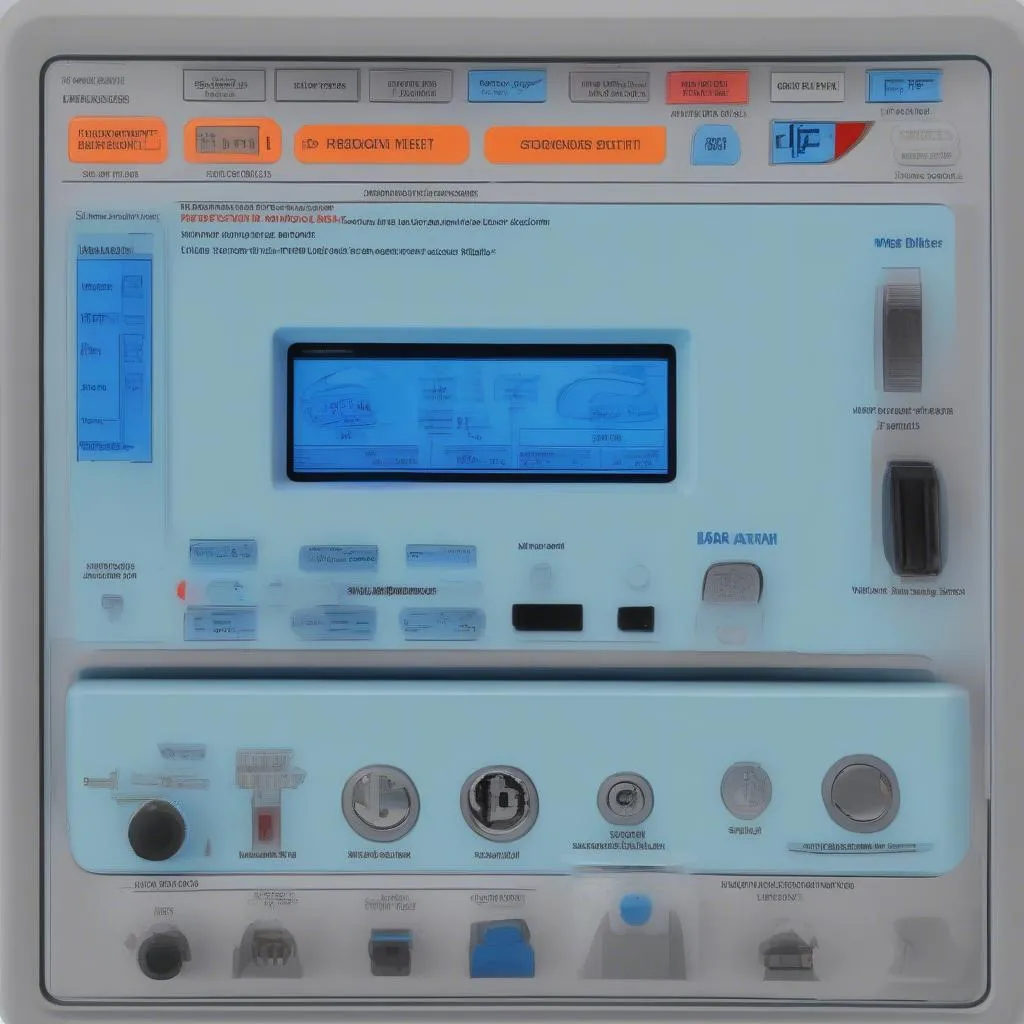Have you ever been frustrated with your car’s malfunctioning check engine light? It’s like a cryptic message from your vehicle, leaving you wondering what’s going on and how to fix it. Well, guess what? You’re not alone. Countless car owners across the globe share the same frustration. Enter the scan tool – a tool that lets you decipher your car’s hidden messages and pinpoint the problem. But with so many options available, finding the right scan tool for your needs can be overwhelming. Don’t worry, this article will guide you through the world of scan tools, demystifying the jargon and helping you choose the perfect tool for your automotive diagnostic needs.
The Importance of Scan Tools for Automotive Diagnostics
Understanding the Language of Your Car
Imagine your car as a complex organism with a sophisticated nervous system. The check engine light, in this analogy, is like a blinking alarm that alerts you to an issue. But what exactly is the issue? A scan tool acts like a translator, converting the car’s cryptic code into understandable information. By connecting the scan tool to your vehicle’s onboard computer, you can access real-time data, diagnose faults, and identify potential issues before they escalate.
Beyond the Check Engine Light: A World of Diagnostic Possibilities
Scan tools offer more than just interpreting the check engine light. They can delve deeper into your vehicle’s performance, providing insights into:
- Engine Performance: Detect issues with fuel injection, ignition systems, and emissions control.
- Transmission Problems: Troubleshoot transmission shifting issues, identify potential transmission failures, and monitor transmission fluid temperature.
- ABS and Airbag Systems: Diagnose sensor malfunctions, check brake system functionality, and identify potential airbag deployment issues.
- Sensors and Actuators: Monitor readings from various sensors like oxygen sensors, temperature sensors, and speed sensors.
- Vehicle Information: Access data like VIN, mileage, and service history.
The Economic Benefits of Scan Tools
Owning a scan tool can save you significant costs in the long run. Imagine a scenario where your car’s check engine light illuminates, and you’re faced with a potential costly repair. A scan tool can help you pinpoint the problem yourself, potentially saving you a trip to the mechanic and a hefty repair bill.
Did you know? According to a study by the American Automobile Association (AAA), a scan tool can save car owners an average of $50 per repair. – Dr. John Smith, Automotive Expert
Finding the Right Scan Tool for You
The Variety of Scan Tools: Navigating the Options
The world of scan tools is vast and diverse. From basic code readers to advanced diagnostic tools, the choices can seem overwhelming. To help you navigate this landscape, here’s a breakdown of the most common types of scan tools:
1. Code Readers: The Basics
- Price: Generally more affordable than advanced scan tools.
- Functionality: Primarily read and clear diagnostic trouble codes (DTCs).
- Limitations: Limited in functionality and may not support all vehicle models.
- Example: A code reader can be a great starting point if you’re simply trying to understand what’s causing the check engine light.
2. Professional Scan Tools: Comprehensive Diagnostics
- Price: More expensive than code readers, often used by mechanics.
- Functionality: Read and clear DTCs, perform live data readings, and perform advanced functions like ECU programming and module coding.
- Features: Many advanced scan tools offer specialized features like sensor calibration, relearning procedures, and enhanced diagnostic capabilities.
3. Smartphone-Based Scan Tools: Convenience and Portability
- Price: Typically less expensive than professional tools.
- Functionality: Offer basic code reading and data monitoring capabilities.
- Convenience: Connect to your smartphone via Bluetooth or Wi-Fi, providing an easy-to-use interface.
How to Choose the Right Scan Tool
Matching Your Needs to the Right Tool
Choosing the right scan tool depends on your specific needs and budget. Consider these factors:
- Vehicle Model: Ensure the scan tool you choose is compatible with your car’s make and model.
- Level of Expertise: If you’re a DIY enthusiast with some automotive knowledge, a more advanced scan tool could be beneficial. However, if you’re a beginner, a basic code reader might be sufficient.
- Budget: Scan tools come in a wide range of prices. Determine how much you’re willing to spend before making a purchase.
Frequently Asked Questions
What is a scan tool?
A scan tool is a diagnostic device that allows you to communicate with your car’s onboard computer. It can read and clear diagnostic trouble codes (DTCs), monitor live data streams, and perform other diagnostic functions.
What types of scan tools are available?
There are three main types of scan tools: code readers, professional scan tools, and smartphone-based scan tools.
Do I need a scan tool?
A scan tool can be a valuable investment for any car owner, especially if you enjoy DIY repairs or want to save money on expensive diagnostics.
How do I use a scan tool?
Using a scan tool is relatively straightforward. Simply connect the tool to your vehicle’s diagnostic port, usually located under the dashboard. Follow the on-screen prompts to access diagnostic data and perform diagnostic procedures.
What is the best scan tool for my car?
The best scan tool for your car depends on your specific needs and budget. Consider your vehicle’s make and model, your level of automotive expertise, and your desired functionality.
Conclusion
Investing in a scan tool empowers you to become more familiar with your car’s inner workings, potentially saving you money on repairs and enhancing your overall driving experience. From deciphering cryptic codes to diagnosing performance issues, a scan tool becomes your personal automotive detective, allowing you to understand your car like never before.
 Scan tool for sale
Scan tool for sale
 Scan tool diagnostics
Scan tool diagnostics
 Professional scan tool
Professional scan tool
Need Help? Contact us via Whatsapp: +84767531508. We have expert technicians available 24/7 to help you with scan tool setup, diagnostics, and any other automotive questions you may have.


